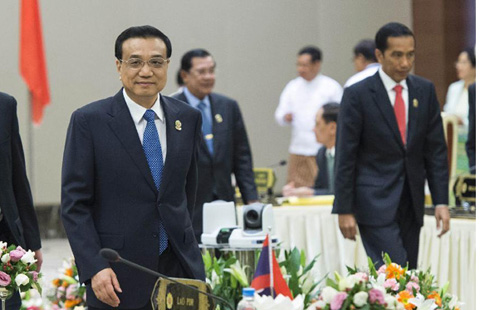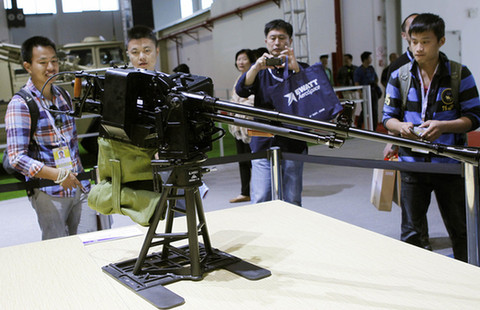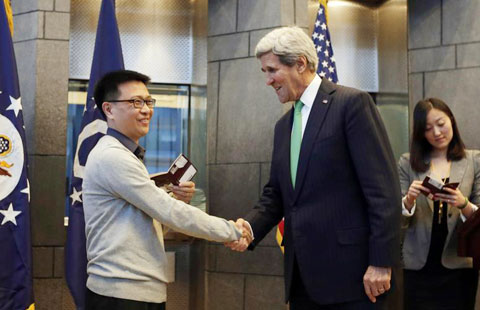Recalibrating China-US relations
Updated: 2014-11-13 07:50
By Zhao Minghao(China Daily)
|
||||||||
If he means by that an armed conflict between China and the US, it would be a disaster beyond imagination. That is also essentially why the two agreed to try to forge a new type of major-country relationship to manage their competitive interdependence and prevent a crisis from spiraling out of control.
But it is not all doom and gloom, there is good news about their relations, too, as it shows they have grown more mature. Even though senior military officers from the two countries pointed the finger at one another at the 2014 Shangri-La Dialogue, the Chinese navy attended the 2014 RIMPAC multinational maritime exercise at the US' invitation. Negotiations about regulations on military actions in the ocean and the air are also going on, as a reaction to the close encounters that have occurred.
Of course, China is not so naive as to imagine the US' alliances in the Asia-Pacific will disappear overnight, but it is justified in believing these alliances increase regional tensions and might possibly lead to an arms race in the long run. The major Asia-Pacific countries need to propel establishing one or more inclusive, open, effective and balanced regional security mechanisms and that should be a common goal of China and the US.
In the 1970s, it was strategic ambiguity that enabled China and the US to temporarily transcend divergences over China's Taiwan, and successfully brought about a thaw in the bilateral relations. They could introduce similar strategic ambiguity today in the territorial disputes over islands in the South China Sea.
The US should realize that China's current objective is not to take back its territory, but rather to suspend the disputes and make sure the other claimants do not challenge it.
It is irreversible that China will play a more important role in the Asia-Pacific, but that does not mean hegemony. President Xi said that the Asian Infrastructure Investment Bank will learn from the best practices of the World Bank and the Asian Development Bank, which shows his sincerity and goodwill, and Obama can echo that goodwill with a deeper understanding of China's new approaches to the Asia-Pacific.
The author is a research fellow at the Beijing-based Charhar Institute and an adjunct fellow with the Center for International and Strategic Studies at Peking University.

 Lang Lang honored with German award
Lang Lang honored with German award
 Premier Li attends the 9th East Asia Summit
Premier Li attends the 9th East Asia Summit
 Airshow China soars to success in Zhuhai
Airshow China soars to success in Zhuhai
 The most people dine on the beds
The most people dine on the beds
 Dangling workers rescued from World Trade Center
Dangling workers rescued from World Trade Center
 Long-term visas issued for China, US citizens
Long-term visas issued for China, US citizens
 Long-term visas issued for China, US citizens
Long-term visas issued for China, US citizens
 Culture Insider: Chic items in ancient China
Culture Insider: Chic items in ancient China
Most Viewed
Editor's Picks

|

|

|

|

|

|
Today's Top News
Chinese company, US farm coop to build milk-powder plant in Kansas
China, ASEAN set goal for upgrading FTA
Country pushes for code at South China Sea
Beijing wants to keep 'APEC blue'
The Waldorf's hefty price tag
US, China reach landmark pacts
Youth urged to get politically involved
Rick Snyder seeks to woo China trade, giant pandas
US Weekly

|

|








